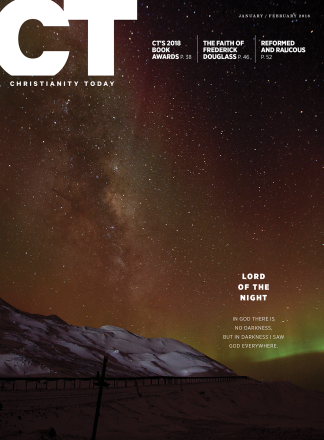Sometimes I talk out loud when I’m sitting in the chair by my book table in the morning or when I’m driving alone in my car. If someone happens into the room, I feel a bit sheepish about these outward aspects of prayer. But I find that talking to God audibly helps me concentrate. It’s becoming a habit of friendship.
As it goes with any conversation between friends, the topics between Jesus and me meander from practical tasks to specific hopes and deeper questions. “Will you remind me to swing by the post office?” “I’m so grateful for Rhodes’s fourth-grade teacher this year.” “I feel alone today. Would you help me to know and believe that you are with me?”
I wonder if David spoke out loud when he first wrote his psalms? I’ve heard that the psalms were sung for many generations before they were ever recorded in written form. I’m thankful for written prayers and for hymns that give me words to speak my heart and teach me to pray. But the art of spontaneous, audible conversation with God feels like a distant practice. Is it far-fetched to consider God a friend who walks with us in this ordinary way?
I believe there’s a humbling glimpse of God’s desire for friendship with us in his generous invitation in Deuteronomy 6:6–7: “These commandments that I give you today are to be on your hearts. Impress them on your children. Talk about them when you sit at home and when you walk along the road, when you lie down and when you get up.”
Hymn writer Austin Miles cast this invitation for us in a slightly different way: “I come to the garden alone / While the dew is still on the roses. . . . And he walks with me, and he talks with me / And he tells me I am his own.”
What does everyday conversation between friends look like? My college literature professor once coached me, with a red pen, to write with a consistent point of view to help the reader clearly understand the story. If our objective is understanding, then we certainly do well to heed this advice.
But maybe being fully human means admitting that our point of view is inherently complex, ever-changing, and mysterious. Like a prism in the sunlight, our souls and stories reflect the light of God in a thousand directions at once. And in prayer, unlike in lit class, it’s good to remember that our words are not graded with a red pen.
In friendship with God, a fluid point of view helps us to see beyond understanding to catch glimpses of God’s infinite beauty. As we talk with Jesus openly about our daily happenings, feelings, and relationships, we’re drawn into real companionship and our hearts are moved to worship.
One of my favorite psalms is Psalm 62. In it, as in much of Scripture’s poetry, we see sudden shifts in the point of view in the writer’s voice. David plants his flag in verse 1: “My soul finds rest in God.” David recounts God’s faithful acts for a few lines, and then, in verse 5, he persuades his own soul again to believe and rest: “Yes, my soul, find rest in God.”
In verse 8, he turns and urges his people to do the same: “Trust in him . . . pour out your hearts to him.” Finally, David personally affirms God in the closing lines: “With you, Lord, is unfailing love” (v. 11).
God shows his fingerprints in our lives from a thousand points of view. His redemption extends to every molecule of the universe, touching science, literature, art, psychology, math, and history. All things have been made by him and for him. He holds it all together (Col. 1:16–17), and he works all to the ultimate good of those who love him (Rom. 8:28).
At God’s invitation, and by the help of the Holy Spirit, may we pour out our hearts to him at all times—out loud in the car, around the dinner table, or on a playful romp in the woods. May our words flow back to him, honest and unfiltered.
While talking casually and out loud to God all day long may be an odd social practice, David reminds us it is also an ancient tradition of gospel-sanity, aligning our hearts with the eternal comfort of friendship with God.
Sandra McCracken is a singer-songwriter who lives in Nashville. Follow her on Twitter @Sandramccracken.
Have something to say about this topic? Let us know here.










